Jimmy Carter: Rock and Roll President: He's History's Greatest Rock Star
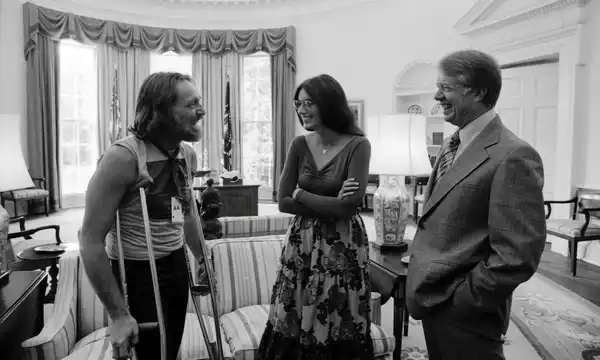
I don't have a working theory of in-flight movies, but if I did, my criteria for enjoying them would be:
1) something you wouldn't normally take the time to watch,
2) which gives you relief from the odd tedium of sitting in place while you hurtle through the sky in a metal tube at two hundred miles an hour, and
3) if you're lucky, it hits you at the time you're best able to receive it.
All of which is to say that after spending an afternoon layover in Atlanta at the Carter Center, there was no way I wasn't going to watch Jimmy Carter: Rock and Roll President when I saw it among the movies on offer on a five-hour flight. I wasn't expecting too much, a cute concept explained by some talking heads elevated by its soundtrack. And to be honest it's not not that, our hosts are always there to guide us through the story it's telling.
But what a story, and what fantastic archival footage! The doc makes clear Jimmy Carter's genuine love of rock music and makes a convincing case that his personal friendships with several of rock's biggest names led to them performing on his behalf, building his national following in the 1976 presidential primary and general election and clinching an unlikely victory. The unearthed footage includes campaign appearances with the Allman Brothers and Jimmy Buffet, a battle of the bands against Jerry Brown and The Eagles, Bob Dylan coming to the White House, Willie Nelson admitting toking up with Carter's son in the White House guest bedroom—to say nothing of the musical performances themselves, which could have been released as a companion album. Carter belting out "Salt Peanut" with Dizzy Gillespie would have probably won him a (second!) Grammy.
It's the kind of too-crazy-to-be-false story that benefits from the talking-head approach, since the interviews themselves are so unbelievable. The many songs included are also used to score appropriate milestones in Carter's candidacy and presidency. It's not breaking new ground in documentary presentation, but its execution is still satisfying, with a subject interesting enough to prompt consideration of its implications for the present day.
It's par for the course now for popular musicians to endorse and perform for Democratic candidates. The Republican line of attack on this, that these are just elites supporting elites, is obviously made in bad faith and not to be taken seriously, but the message, considered independent of the messenger, has some truth to it. Both politics and the music industry are so slickly professionalized that even the better versions of this—the 2008 will.i.am "Yes We Can" video comes to mind—usually feels more like a product of brand synergy than personal affinity. Once in a while you'll get a "Big Gretch" and "Gretch Did," products of spontaneous grass-roots support, but more often than not it's coordinated and calculated and comes off, as the kids like to say, cringe.
But neither politics nor music had yet calcified in 1976. Lester Bangs may have told a young Cameron Crowe surrogate in Almost Famous that the party was already over, but the musicians here were still the product of local scenes and followings rather than record moguls. Jimmy Carter was about as outsider as one gets in politics without being a celebrity gatecrasher, as the governor of a southern state still exorcising the demons of segregation.
Carter in word and deed was doing his part in that purge, and there was a natural camaraderie between him and musicians who were often themselves on the front lines of fights over integration. It's remarkable to hear stories like his refusal to downplay his friendship with Gregg Allman during his presidential campaign, after Allman had been busted for drug use and became a cooperating trial witness and was therefore reviled by both polite society and the rock world. Carter was and remains the rare public Christian to walk the walk on his Christian ideals of mercy and charity.
Among other beneficiaries of Carter's generous spirit was the Shah of Iran, Mohammad Reza Pahvlavi. He was among many world leaders Carter had cultivated a personal relationship in the interest of diplomacy, and Carter in fact hosted him at the White House with performances by Sarah Vaughn and Dizzy Gillespie and Earl Hines. After the 1979 Iranian revolution began and Pahvlovi fled to the U.S. for desperately needed cancer treatment, Carter's humanitarian spirit—with the conspicuous encouragement of anti-humanitarians David Rockefeller, Henry Kissinger, and congressional Republicans—led him to admit the ailing autocrat.
The doc notes the political cost of this decision: so infuriated were Iranians that a group of students breached the U.S. Embassy and took 53 personnel hostage, a crisis that hobbled Carter's presidency and helped doom his re-election campaign. It doesn't note the compelling evidence that Ronald Reagan's campaign ratfucked negotiations to prolong the hostage crisis through the end of Carter's presidency. But neither does it dig any deeper into the dilemmas that Carter's relationship with the Shah presented. The anger of the Iranian revolution did not come from nowhere, and the U.S.'s tacit approval of the Shah's imprisonment of political rivals belies Carter's commitment to democracy and human rights.
Yet this was not the kind of cynical Kissingerian realpolitik that e.g. undergirds America's current ongoing relationship with Saudi Arabia, at least not entirely. Carter's praise of Pahvlavi included his support for research into alternative energies; the alliance was earnestly considered an opportunity for progress on his signature issue of environmental stewardship. The Carter administration in retrospect feels like a missed opportunity, the last chance the United States had to change course on its ballooning fossil fuel consumption and the consolidation of busines interests undergirding it, and there's a tragic irony to the fact that Carter's support of an international ally in that mission set the cause back for a generation. It highlights the limits of personal decency when dealing with systemic issues in political contexts of competing interests. Would handing over the Shah, repressive and hated and no longer even politically useful, have gained the U.S. some credibility among the Iranian people and weakened the theocrats who were its fiercest critics? Would the ability to help countless others be "worth" denying care to a dying man?
Geopolitical trolley care problems and structural critique of American hegemony are probably too big an ask for a doc that's mostly concerned with how cool it is that Jimmy Carter is friends with Willie Nelson. And it is cool. I already thought Jimmy Carter was our coolest ex-president, but for unconventional things like eradicating Guinea Worm Disease and putting his credibility in negotiating peace between Israel and Egypt behind his extremely unpopular criticisms of Israel's treatment of Palestinians. It is a genuine shock and delight to find that not only did Jimmy Carter love the coolest musiciains of his day, they loved him back. For that and his post-presidency the man really is, for the time being, the coolest dude alive. More's the pity then that I could most feel his legacy as President of the United States while I watched Rock and Roll President: aboard a plane that had to reroute around historically destructive Hurricane Milton, harbinger of unaverted climate catastrophe.
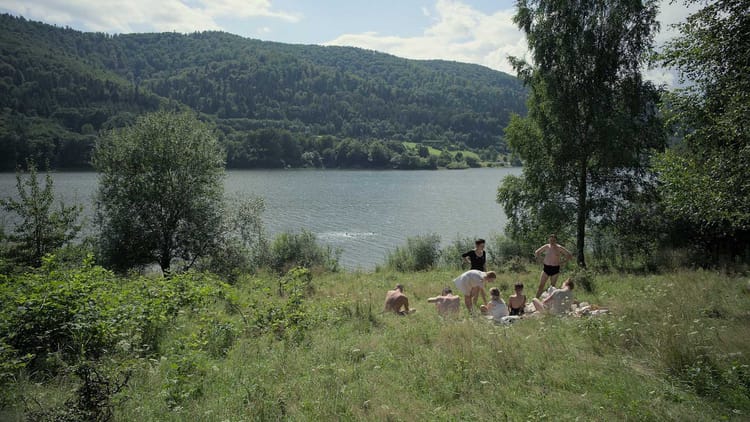
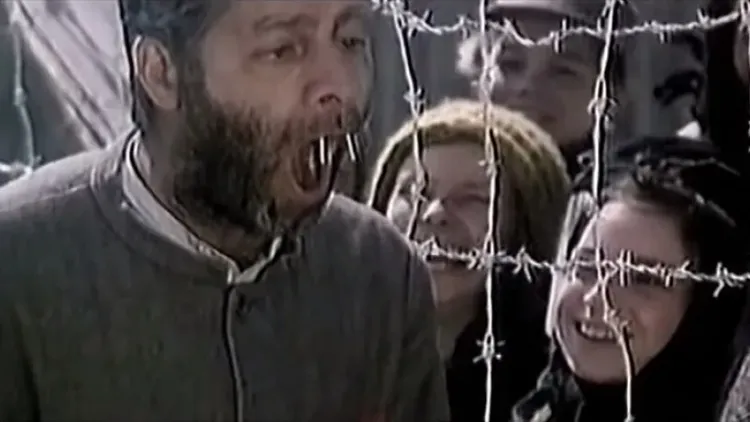
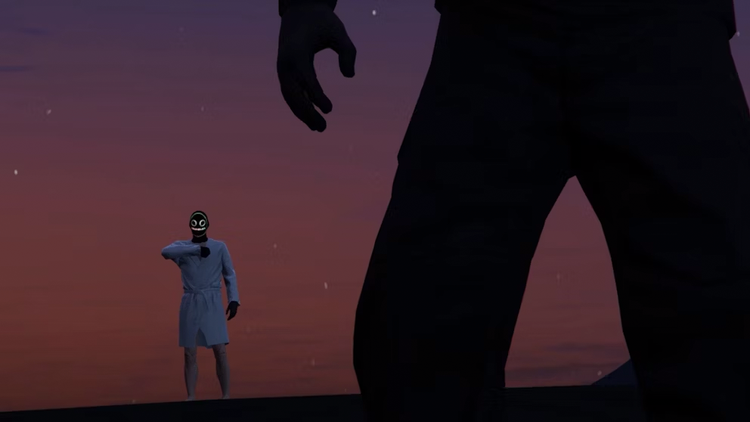
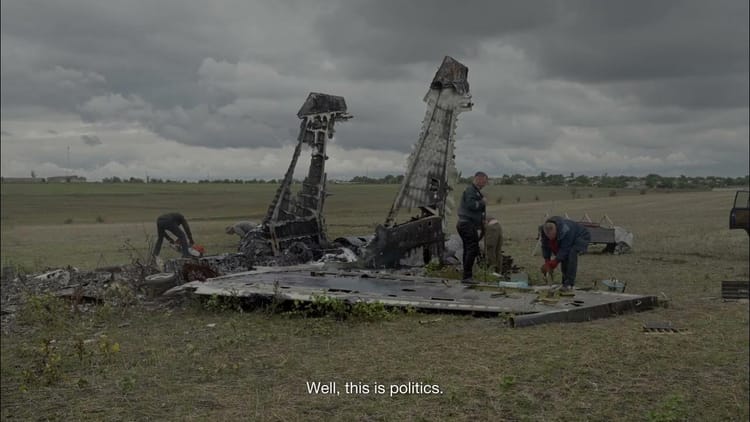
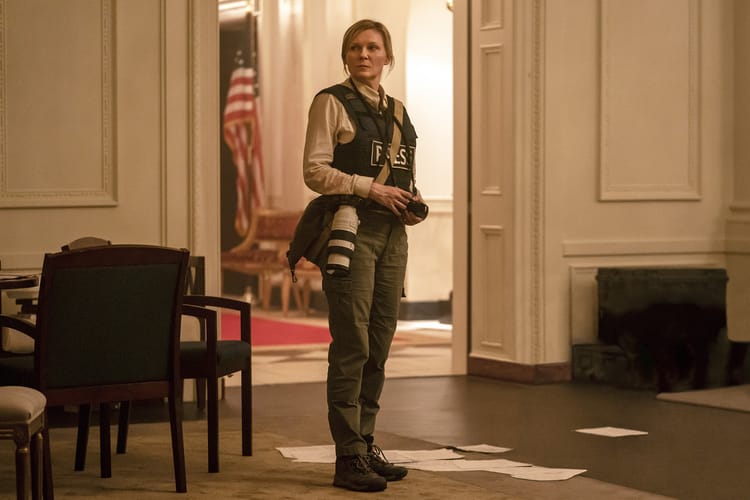
Member discussion